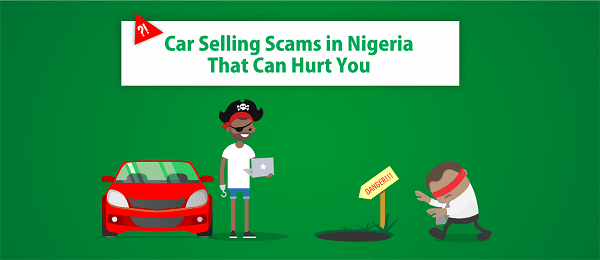One of the saddest things to happen to a car buyer is to be short-changed by a car seller. Even worse, is the possibility of losing the entire fund to scammers who specialise in outsmarting naïve car buyers. The Nigerian online car-selling space can be a safe space if you make use of tried, tested and trustworthy platforms like Cheki.com.ng to buy your car.
However, it could also be a den of scammers if you patronise other untrustworthy platforms. Below are popular car selling scams and how best to avoid them.
Be Suspicious of Extremely Good Deals
It is understandable that you will like to get your next car at the best possible price. Everyone will like to get the same too. An easy way out of this is to use the Cheki True Price tool. It helps you find out the real value of any car you are interested in buying.
The moment a seller realises you do not know the actual value of a car, it is something they will most likely exploit, especially when dealing with naïve buyers. When searching for a car to buy, as much as you are looking for the best prices out there, beware of offers that appear too good to be true.
Don’t fall for a seller who is willing to sell a used 2018 Toyota Camry for N1 million when you know that the price runs into millions elsewhere. If you see such offers, consider it a red flag. You are about to be scammed.
Also, be wary of any seller who’s willing to offer a cheap price while creating a weird feeling of urgency around the car. Car sellers who try to force buyers into making a hasty decision within a short time are not to be trusted.
Some scammers are known to have been able to carry out their nefarious activities by pressuring buyers to contact a third person because they (the seller) are not in the country. Avoid third person transactions as much as you can.
Never Agree to Advance Payments
One of the commonest scams around is the request for advance payments by car sellers to enable them to bring the car over for inspection. This should be a red flag in any car purchase you are involved in. it does not matter whether the request is coming online or offline.
In cases where you think the car is a good fit for what you want and you are willing to grant the seller the benefit of the doubt, arrange for a location where you can inspect the car. But never give out cash in any form, as that’s only a new way of advance fee fraud.
Inspect the Odometer Carefully
Odometer fraud occurs because people want to make extra money from a used car by tampering with the odometer. The average mile per year for a car is pegged at 20,000 kilometres. Therefore, when you are purchasing a used car that has been on the road for four years but has only 40,000 kilometres on the odometer, this should be a red flag that the odometer has been tampered with.
However, you still need to look closely at the odometer to confirm. A number of cars are programmed to show an asterisk when the odometer is tampered with. Also, you can ask to see the oil change and maintenance receipts to see if the mileage recorded on the inspection stickers tally with the one at the odometer.
Copy and Paste Car Descriptions
Most of the car selling scams around are full of copy and paste car descriptions from random websites. They fail most times to reveal more information about the condition of the car on offer. Therefore, be wary of single sentence adverts calling for buyers, especially those where only the name of the car, model and year are stated without any other useful information.
On the other hand, a genuine seller will provide you with detailed information about the car that will enable you to make up your mind about whether to purchase the car or not.
To spot a fake advert for a car sale, you can just copy and paste the car description on Google search, and the website where the scammer copied the information will be out.
The Identity of the Seller
In a case where the car description matches your expectations, the next thing to do is to take steps to verify the identity of the seller. One of the best ways is to put a call through to the seller and ask him as many questions related to the car as possible.
From the phone call, you will be able to tell if the seller is genuine or not, especially with his ability/inability to provide further information about the car advertised.
You could also save yourself the stress of falling for a scam by searching for any previous car-selling related history of the seller.
Final Thoughts
While common car selling scams may include all of the above-stated signs, sometimes, people are scammed because their greed prevents them from identifying a sale that is too good to be true. Most times, the signs are glaring and not so difficult to see. Avoid hasty decisions and advance payments. Listen for hesitations when it comes to issues of inspecting the car with the seller. If you notice that that same car is on another website for a different price and by the same seller, it is perhaps time to let the seller be. He’s a scam. If you really need to buy a car, go for trusted car dealers who have a track record of selling quality cars.
